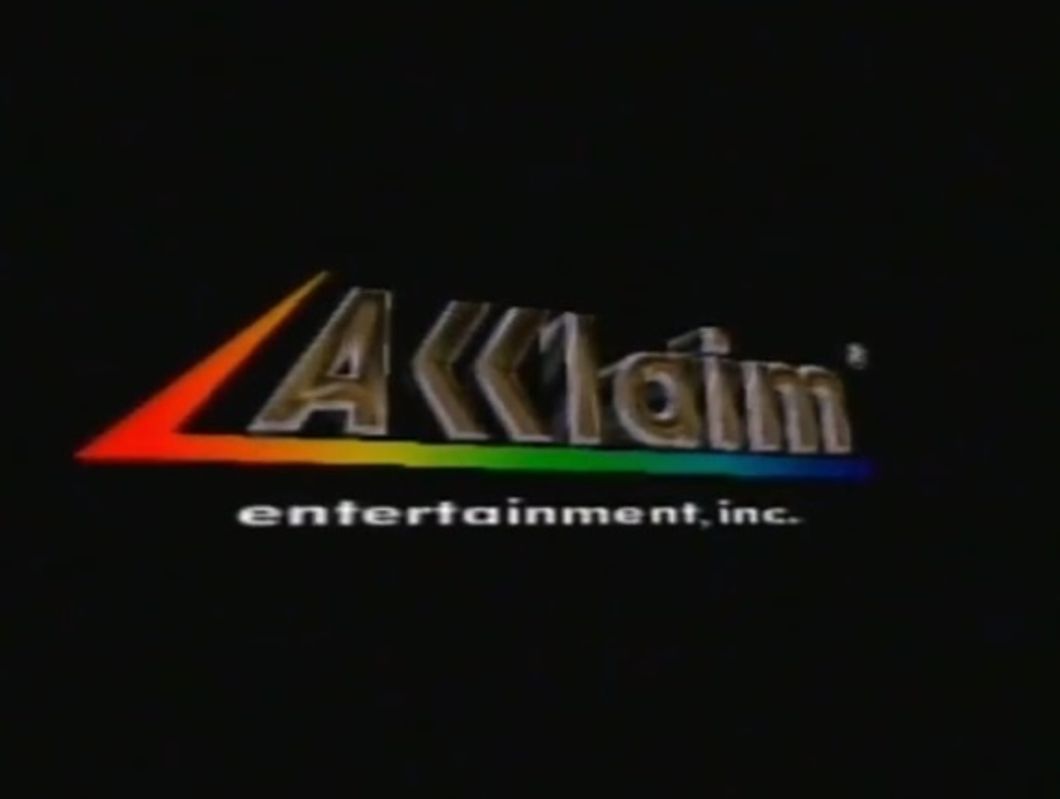Acclaim Entertainment was one of the most popular developer/publishers of the late 90s and early 2000s. They were known for games such as Burnout, Turok, Dave Mirra Freestyle BMX, and various games. Unfortunately, the company went bankrupt and shut down in 2004.
How did this happen? Well, first we'll have to take a look at how the company's early days for answers.
Acclaim was founded in 1987. They originally began as a video game publisher that published the console versions of arcade games such as the original Mortal Kombat and Double Dragon. In 1988, Acclaim started a publishing deal with the World Wrestling Federation that began with the release of the first licensed WWF game, WWF WrestleMania on NES. Development was outsourced to Rare (creators of Banjo Kazooie) for this game.
Outsourcing was a common practice for Acclaim that lasted until 1995 when they began purchasing various independent developers. The developers' purchases include Iguana Entertainment (later known as Acclaim Studios Austin), Probe Entertainment (later known as Acclaim Cheltenham), and Sculpted Software Inc.
Also during this time, Acclaim became the first video game company to own an in-house motion capture studio. This was quite uncommon at the time. Films such as James Cameron's "Avatar" and the "Lord of The Rings" trilogy have used the same technology created by Acclaim to animate and create CGI characters.
One of the first games to use this technology was Turok, which originally was a Valiant Comics series until Valiant was purchased by Acclaim in 1994. The game, announced the same year, developed as a Nintendo 64 exclusive due to release on September 30, 1996.
During Turok's development, Acclaim was struggling financially. The company had been slow to move on from older platforms, like the Genesis and NES, to newer platforms like the PlayStation and Nintendo 64. Acclaim ended up putting their future in the hands of Turok. The game launched to mostly positive reviews and had surpassed 60 million sales worldwide by June 1997.
In 1999, Acclaim lost the WWF games license to THQ due to the popularity of their World Championship Wrestling games. Acclaim tried their luck at wrestling games again by purchasing the Extreme Championship Wrestling license and releasing two games based on the company. Ironically, ECW declared bankruptcy in the spring of 2001 while also owing Acclaim money. Soon, the company began to lose money due to poor sales and low popularity thanks to a string of bad publicity.
The bad publicity started with the development of the next entry in the Dave Mirra Freestyle BMX series, named after the famed BMX rider. The game saw a drastic alteration, going from a typical, extreme sports video game to a nudity-filled raunchfest. It's rumored that this change took place because Acclaim wasn't satisfied with the state of the game and had already put so much money into it that they didn't want to waste it. They also wanted to create controversy and gain attention, hoping that it would equal sales.
When Dave Mirra found out what Acclaim was doing, he took them to court to prevent them from using his name in association with the game. Mirra was victorious and the game's title became "BMX XXX." The game launched in November 2002, but only sold under 100,000 copies making it a flop. It was also banned from several stores due to its content.
This wouldn't be Acclaim's last time in court--or their last time losing in it, either. In April 2004, they were sued by the Olsen twins for unpaid royalties over the games they had published about them. IGN reported that Acclaim had failed to pay over $177,966.32 in royalties to Dualstar Entertainment, the Olsens' company. The lawsuit also included back royalties and a $300,000 settlement fee from a split between Dualstar and Acclaim. A letter, presumably from the Olsens' attorney, stated that Acclaim "blatantly abandoned the Mary-Kate and Ashley brand, and had taken the Mary-Kate and Ashley brand in video games which had flourished and ran it into the ground."
Think these lawsuits are bad? It only gets worse from here. During Acclaim's spiral into bankruptcy, executive Steve Perry decided to make a lot of odd and controversial marketing and business decisions. For example, people who planning funerals who didn't have enough money could've gotten some from Acclaim...but only if they put a small advertisement for the game Shadowman 2 on their loved one's tombstone.
Andrew Bloch, head of Acclaim's marketing, explained: "Shadowman was this dark game about the afterlife and it was trying to reflect the nature of the game, so we called it 'deadvertising.' It was in slightly dubious taste but the thing that amazed me was that, actually, people did write in and email and want to have it done."
The next bad idea from Acclaim Marketing was to pay for people's speeding tickets gained on the release day of Burnout 2, a game about crashing cars. The response was exactly what you'd expect: negative. The British government even complained about it.
The failure of all these advertising campaigns and poor game sales eventually led to Acclaim closing several studios before ultimately filing for bankruptcy on September 1, 2004. A month later, the company, under the name Exclaim, tried to reopen two of its closed studios but failed due to intellectual property issues.
Acclaim came into the gaming industry as a strong publisher intent on delivering games to fans and left it as a corporation desperate to selling games by following the saying of "Controversy Creates Cash."









































